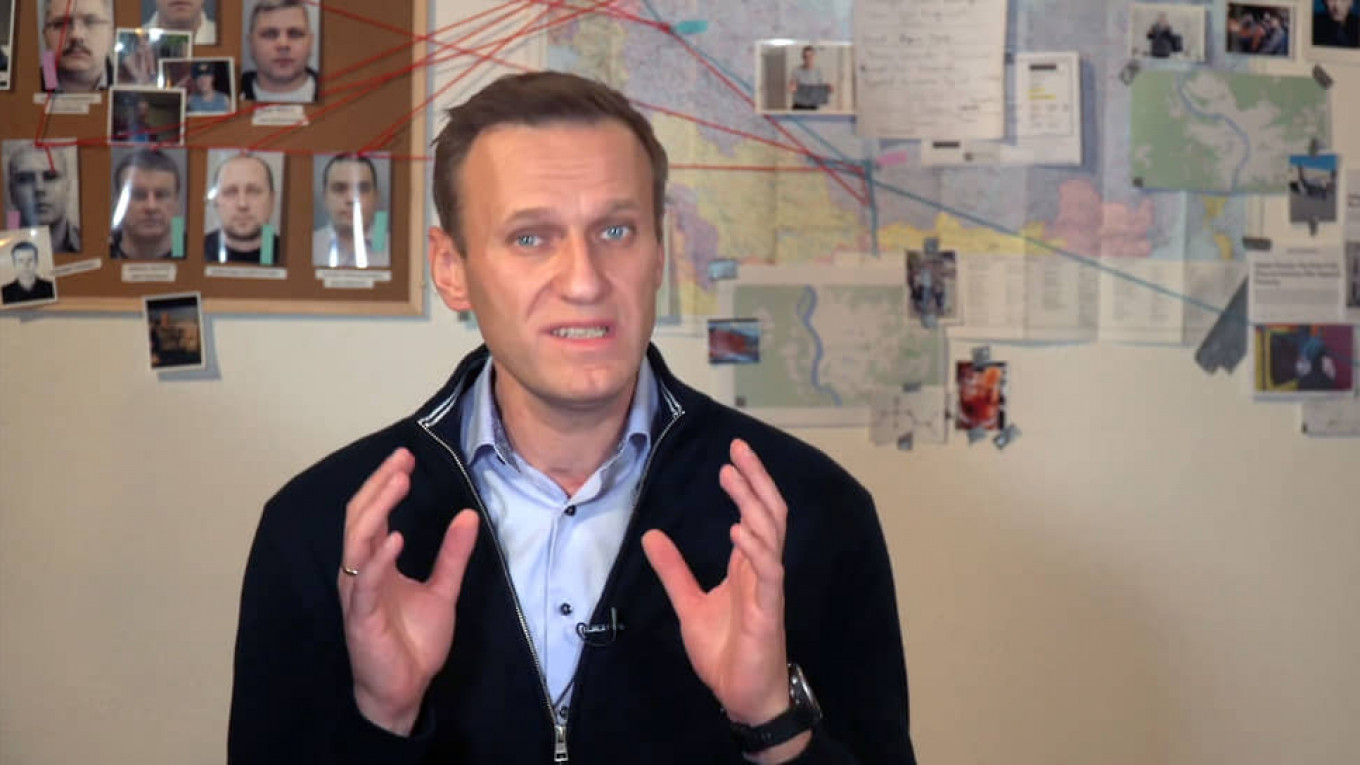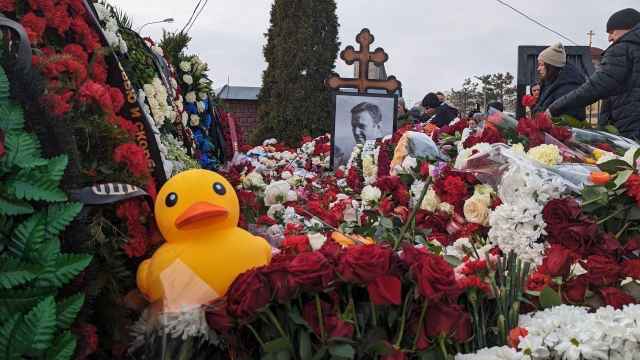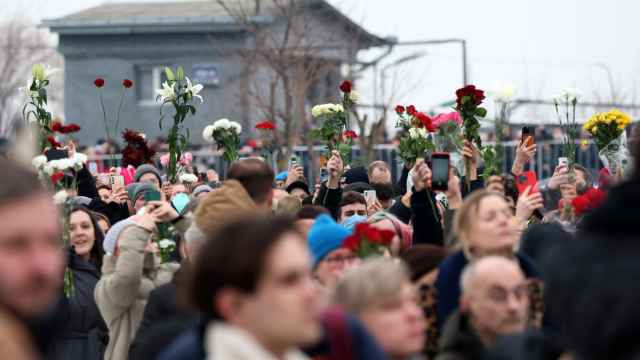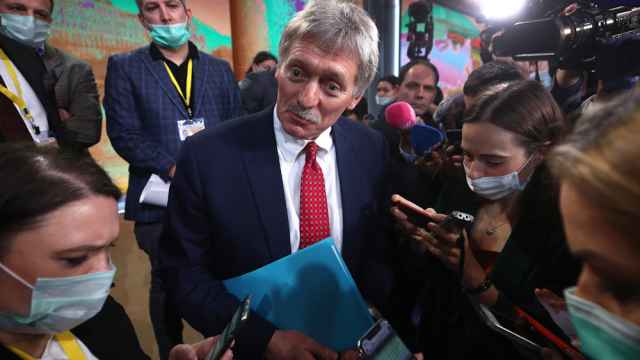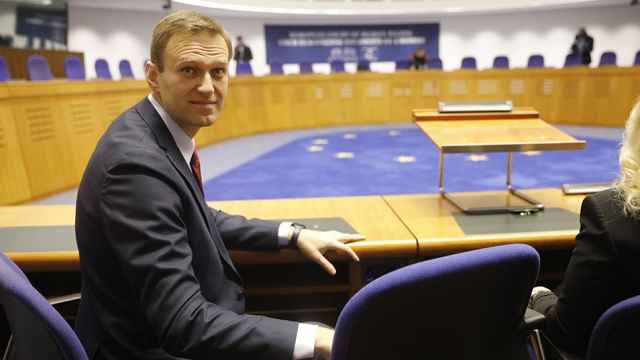Russia’s leading opposition figure Alexei Navalny has delusions of grandeur and persecution, Kremlin spokesman Dmitry Peskov said Tuesday after Navalny said he tricked an intelligence officer into admitting an attempt to poison him.
Peskov said he allowed himself to “indulge a personal point of view” after Navalny’s video of a phone call with an alleged Federal Security Service (FSB) agent went viral on YouTube. In the video viewed 12.6 million times in less than 24 hours, a voice identified as FSB chemical warfare specialist Konstantin Kudryavtsev divulged key details of the poisoning to Navalny.
“The patient has a pronounced persecution complex. One can clearly see manifestations of megalomania,” the Dozhd internet news channel quoted Peskov as saying to reporters.
“He even compares himself to Jesus. The rest is a Freudian fixation on his own fly and so on,” Peskov said of Navalny.
Peskov said he had not watched Navalny’s video, where the voice identified as Kudryavtsev told Navalny that other agents had placed the poison in Navalny’s underwear on a trip to Siberia in August. Kudryavtsev detailed how he and another FSB agent had flown to a city where Navalny was hospitalized after the poisoning to remove any trace of the substance.
Navalny fell into a coma on Aug. 20 and was flown to Germany, where European scientists identified the substance used to poison him as the Soviet-designed nerve agent Novichok. The Kremlin continues to deny that Navalny was poisoned, a stance Peskov reiterated on Tuesday's conference call.
Navalny said he disguised his number and posed as a senior security official in charge of the debriefing during the Dec. 14 call. A joint media investigation published that day identified Kudryavtsev alongside several other alleged FSB chemical warfare experts who had tailed Navalny on dozens of trips, including on the day of his poisoning.
The FSB late Monday dismissed Navalny's phone call as a "provocation aimed at discrediting" the agency. It said that the phone conversation "about the alleged actions against" Navalny would not have been possible without "the support of foreign intelligence services."
The FSB added that a video of Navalny conducting the conversation was "fake."
President Vladimir Putin confirmed last week that FSB agents had been following Navalny and called the Kremlin critic's anti-corruption investigations an attempt to “propel” himself to “a person of the same caliber” as Putin.
“I think, though, that something else, not these tricks, should be used to gain people’s respect and recognition,” Putin said during his annual press conference last Thursday, according to a Kremlin transcript.
“You need to prove your worth either by doing something important or by putting together a realistic program with specific goals,” he said, continuing his years-long tradition of not referring to Navalny by name.
AFP contributed reporting.
A Message from The Moscow Times:
Dear readers,
We are facing unprecedented challenges. Russia's Prosecutor General's Office has designated The Moscow Times as an "undesirable" organization, criminalizing our work and putting our staff at risk of prosecution. This follows our earlier unjust labeling as a "foreign agent."
These actions are direct attempts to silence independent journalism in Russia. The authorities claim our work "discredits the decisions of the Russian leadership." We see things differently: we strive to provide accurate, unbiased reporting on Russia.
We, the journalists of The Moscow Times, refuse to be silenced. But to continue our work, we need your help.
Your support, no matter how small, makes a world of difference. If you can, please support us monthly starting from just $2. It's quick to set up, and every contribution makes a significant impact.
By supporting The Moscow Times, you're defending open, independent journalism in the face of repression. Thank you for standing with us.
Remind me later.


